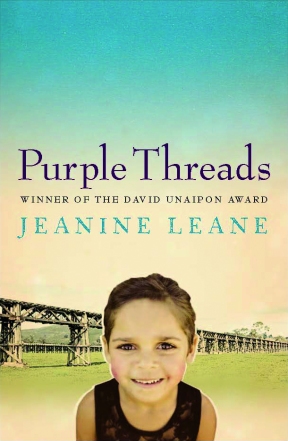Jeanine Leane; Wiradjuri Writer
About myself:
I was born in Wagga Wagga, on Wiradjuri Country and grew up near Gundagai on the Murrumbidgee River during the early 60s and 70s in a house full of Aunties and animals. When I was a child, my Aunties encouraged me to ‘write books’ on the large sheets of brown paper that were used to wrap loaves of bread. When I wasn’t writing my own stories I was being read to and most importantly told stories about family and Country. After I left home to study in the early 80s. I kept a journal where I scribbled down stories, usually based on people who’d influenced me and /or events I’d witnessed or experienced. I wrote poetry too, sometimes as a different way to tell a story. But I wasn’t confident to share my work in public. I didn’t think I was a particularly good creative writer. I wrote mainly as a way of remembering.
After a long career as a secondary school teacher, I moved to the tertiary sector where I worked with Aboriginal students entering tertiary programs and taught Indigenous Education to mainly non-Aboriginal student teachers. As well as writing another passion of mine is Australian literature, especially that which represents Aboriginal people. The history of literary representations of Aboriginal people began shortly after the arrival of the British diaspora to Australia. Such representations influenced the perceptions and opinions of generations of settler Australians. However while Aboriginal people all over Australia have always been literate in the telling and retelling of our histories and stories, and have always read the Country, it was not until the 1960s that our stories came to be recognized and appear in print. The body of literature that has been realized is Aboriginal history and experience explored through such literary genres a poetry and fiction.
While I was teaching, an Indigenous scholar, whose work I greatly admired, encouraged me to turn this passion into a PhD. With the assistance of a scholarship I left the workforce full time to study. I felt like giving up many times but I was always told at home ‘there’s no such thing as can’t’ and I like to remember my Aunties’ words. During this time too I started to focus on my Aunties’ and Grandmother’s stories I knew it was time to write down the memories I’d scribbled of the resilient women who raised me.
My Writing
Dark Secrets After Dreaming: AD 1887-1961 is my first volume of poetry published in 2010. It is sequential poetry inspired by anecdotal and family stories that tells tragic story of early invasion of the Wiradjuri lands, the institutionalization of children, the failure of the settlers to read and understand the land, but it also speak to the resilience of Aboriginal people especially women. The following extract is from the title poem, Dark Secrets.
They keep us locked away like
Dark secrets.
Never hearing our cries,
Never seeing our misery,
Never feeling our hunger while the bones of
Mother and Grandmother remember when
this whole country was one big kitchen
where the pantry was never empty.
Dark Secrets won the 2010 Scanlon Prize for Indigenous Poetry. I was published by Presspress and is available at www.press.press.com.au
Purple Threads is a collection of stories of land and people and the powers that tie people to land. This book is about some feisty Black women who have seen their share of tragedies and injustice. But it is the humor, the importance of fireside stories, and the encouragement of the children as the continuing custodians of the land and hope for the future that I most wanted to capture.
The following excerpt is from a mystery story where my Aunties use their knowledge of land, people and place to intervene in a continuing colonial problem.
The farmers, their wives and the townspeople were always amazed and dismayed at the changing of the seasons. Aunty Boo said they were gammon because the country always turns. The seasons turned and turned again as the river swelled and shrank, dictating the course of all life around it.
The manuscript for Purple Threads won the David Unaipon Award (QLD Premier’s Literary Awards) for an unpublished Indigenous story in any genre. It was published in 2011 by the University of Queensland Press (UQP) and is available from all major book sellers and UQP, www.uqp.edu.au
More information about Aboriginal literature can be found at www.austlit.edu.au/blackwords
This rich and vast digital humanities resource contains biographical and contextual information on Aboriginal and Torres Strait Islander writers, their works and related literary criticism and reviews. Happy reading!



I have just encountered your poetry for the first time, as both a teacher and a reader, and I have been deeply moved by your words. My year 9 class are currently reading Indigenous poetry and they have responded with enthusiasm and insight to your poems. I intend to buy both books and continue exposing my students to your insights and passion. Thank you for providing me with one of the best reading experiences I have had this year!